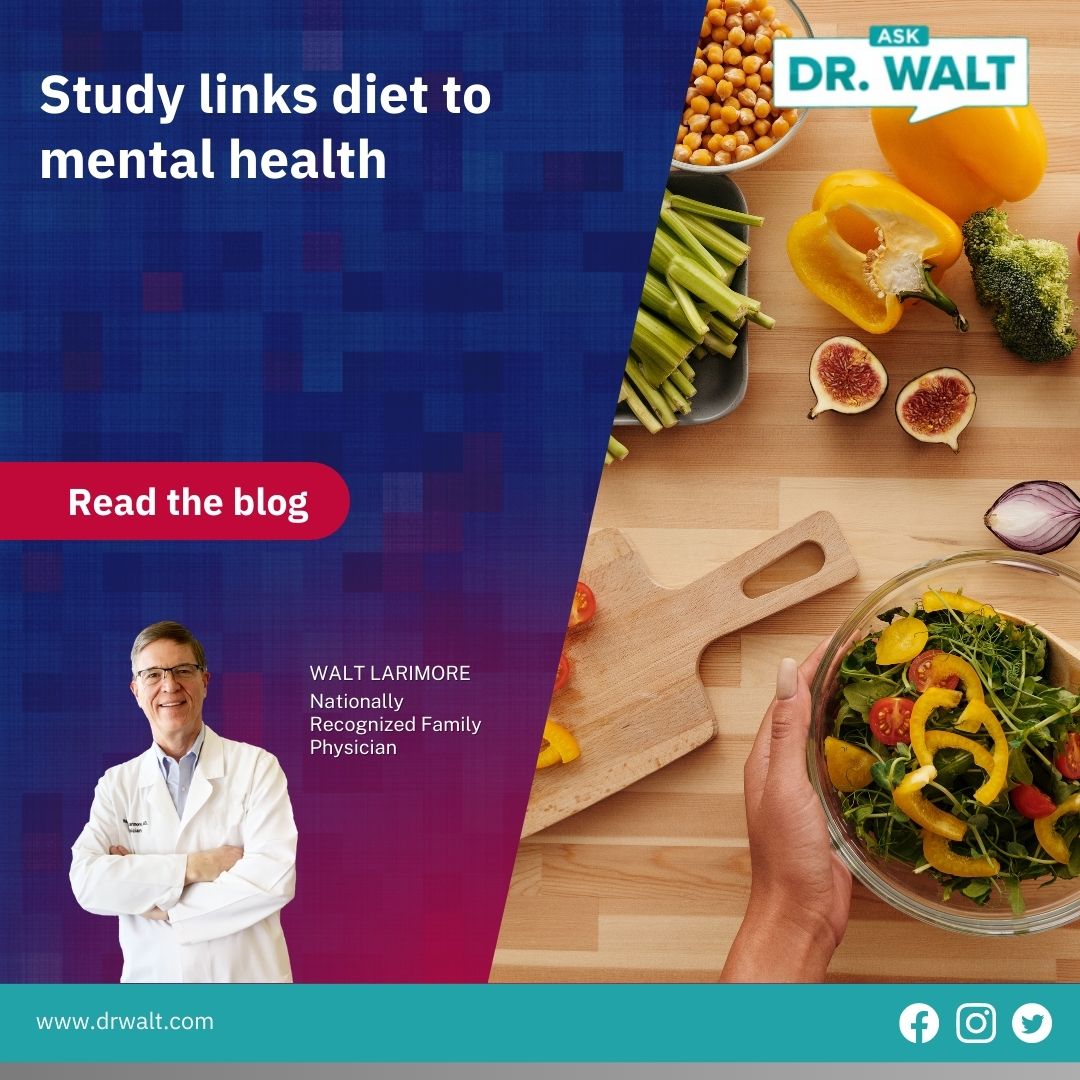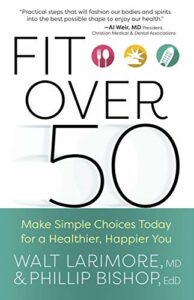
Study links diet to mental health
August 10, 2022
Weekend-only exercise may provide a health benefit of daily exercise
August 12, 2022Dear Dr. Walt,
As we head for New Year’s, folks always start thinking about weight loss. What’s the best diet overall? Do any of them really work?
—Overweight in Oklahoma
Dear Weighty,
Everyone has an opinion, but what do the experts say? My favorite answer to this question comes from the annual ratings published each year in U.S. News and World Reports. The editors convene “a panel of food and health experts to rank (dozens of) diets on a variety of measures” such as “the diet’s ability to help a person lose weight in the short and long term.” So, what do the experts say is the best? What were the best diets?
In 2019, the “Best Diets Overall” and “The Best Diets for Healthy Eating” were the Mediterranean Diet, followed by the DASH Diet, and the Flexitarian Diet.
In “The Easiest Diet to Follow,” the Mediterranean Diet was tops, followed by a second-place tie between the Flexitarian and Weight Watchers diets.
The best three diets for weight loss were, in order: the WW (Weight Watchers) Diet, followed by a second-place tie between the Volumetrics Diet, and the Flexitarian Diet.
For the best “Heart-Healthy Diets,” the Mediterranean Diet and the Ornish Diet tied for first, followed by the DASH Diet.
In the “Best Plant-Based Diet” category, the experts chose, in this order, the Mediterranean Diet, and the Flexitarian Diet, with the Nordic and Ornish diets in a third-place tie.
In the “Best Commercial Diet Plans,” the winners were the WW (Weight Watchers) Diet, the Jenny Craig Diet, and the Nutritarian diet.
Quite frankly, I don’t think you can go wrong with any of these. My current favorite nutrition plan to recommend is the Mediterranean Diet, followed closely by the Flexitarian and DASH diets. All three emphasize consuming lots of fruits and vegetables as well as healthy fatty foods like fish, nuts, and olive oil.
The Mediterranean Diet is based upon the general belief that the people in countries bordering the Mediterranean Sea live longer and suffer less chronic disease, cardiovascular disease, and cancer than most Americans. There isn’t a specific Mediterranean diet. Italians eat differently from Greeks, who eat differently from the Spanish. But folks in these countries have a not-so-surprising secret: a lifestyle that is actively combined with a diet low in red meat, sugar, and saturated fat, while high in produce, nuts, and other healthful foods.
The American Heart Association (AHA) says, “Mediterranean-style diets are often close to our dietary recommendations, but they don’t follow them exactly. In general, the diets of Mediterranean people contain a relatively high percentage of calories from fat. This is thought to contribute to the increasing obesity in these countries, which is becoming a concern.”
The 2015–2020 US Dietary Guidelines say, “There are many ways to consume a healthy eating pattern, and the evidence to support multiple approaches has expanded over time. The Healthy Mediterranean-Style Eating Pattern and Healthy Vegetarian Eating Pattern, which were developed by modifying the Healthy US-Style Eating Pattern, are two examples of healthy eating patterns individuals may choose based on personal preference.” You can find more on these at tinyurl.com/yc6nbarz.
In fact, in a three-month randomized trial of 100 adults, two eating plans—(1) a vegetarian diet that included eggs and dairy and (2) the Mediterranean diet—were shown to be equally effective in reducing body weight, body mass index (BMI), and fat mass The vegetarian diet was better lowering LDL (the “bad” or “lethal” cholesterol) and the Mediterranean better at lowering triglyceride levels; so, it was concluded, both protected heart health equally.
According to a Centers for Disease Control and Prevention (CDC) report, “the vast majority of Americans are not eating enough fruits and vegetables.” The CDC reported only about one in 10 Americans eat the daily recommended amount of fruit, while less than nine percent ate the daily recommended amount of vegetables.
The Texas Heart Institute wrote, “Working with the Harvard School of Public Health, Oldways, a nonprofit food think tank in Boston, has developed a consumer-friendly Mediterranean diet pyramid that emphasizes fruits, veggies, whole grains, beans, nuts, legumes, olive oil, and flavorful herbs and spices; eating fish and seafood at least a couple of times a week; enjoying poultry, eggs, cheese, and yogurt in moderation; and saving sweets and red meat for special occasions.”
And a 2018 study reported, “People who followed this type of (Mediterranean) diet had 25 percent less risk of developing cardiovascular disease over the course of 12 years.”
You can find additional guidance here.
For more information about these healthful diet plans, including their health and nutrition effects, lots of recipes, dos and don’ts, and an expert review on each, here are some websites (in alphabetical order):
What were the lowest-ranking diets? The panel’s bottom ten rankings, from lowest up, were:
- the Dukan Diet (#41),
- Body Reset Diet (#40),
- the Keto Diet tied with the Whole30 Diet (#38),
- the Atkins Diet (#37),
- Fast Diet, Paleo Diet, Raw Food Diet, Supercharged Hormone Diet (tied for #33) and
- the Alkaline Diet (#32).
Every January, U.S. News and World Reports releases their newest diet recommendations. Keep an eye out for them. But no matter which healthful nutrition plan you choose, combine it with staying physically active and the other tips you’ll learn in my book, “Fit over 50,” and you’ll be on your way to better health.
© Copyright WLL, INC. 2022. This blog provides healthcare tips and advice that you can trust about a wide variety of general health information only and is not intended to be a substitute for professional medical advice, diagnosis, or treatment from your regular physician. If you are concerned about your health, take what you learn from this blog and meet with your personal doctor to discuss your concerns.




